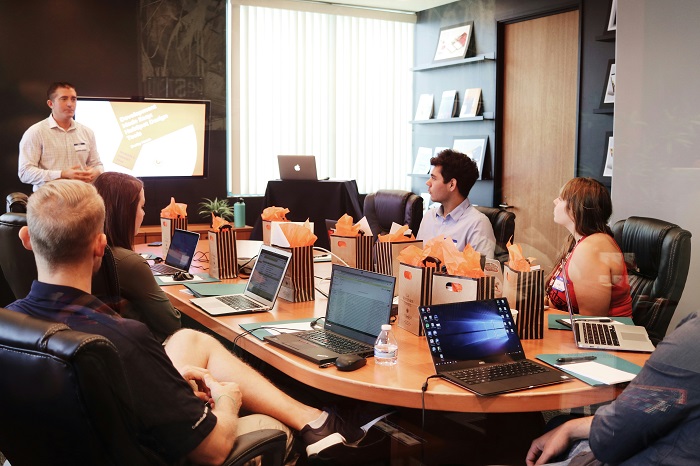Work events play a crucial role in fostering team spirit, enhancing productivity, and promoting a positive work culture.
Whether it’s a training session, a team-building exercise, or an annual conference, organising a successful work event requires meticulous planning and execution.
With help from team building experts Wildfire, here are some strategies to ensure your work event is both engaging and impactful.
Define Clear Objectives
The first step in organising any work event is to define its objectives. Are you aiming to improve team cohesion, introduce new strategies, or celebrate achievements? Clear objectives will guide the planning process and help measure the event’s success. Communicate these goals to all participants so everyone is aligned and understands the event’s purpose.
Know Your Audience
Understanding the needs and preferences of your audience is key to creating an engaging event. Consider factors such as the demographics, interests, and professional backgrounds of the attendees. This information will help you tailor the content, activities, and overall tone of the event to ensure it resonates with the participants.
Plan Engaging Activities
Interactive and engaging activities are vital for maintaining attendees’ interest and participation. Incorporate a mix of presentations, workshops, and interactive sessions to cater to different learning styles and preferences. Icebreakers and team-building exercises can help break the ice and foster a sense of camaraderie among participants.
Choose the Right Venue
The venue plays a significant role in the success of a work event. Choose a location that is easily accessible and suits the nature of the event. Ensure the venue has all the necessary facilities, such as audio-visual equipment, comfortable seating, and adequate space for activities. The ambience of the venue should also align with the event’s objectives and tone.
Leverage Technology
Incorporating technology can enhance the overall experience of your work event. Use event management software to streamline the planning process, from registration to feedback collection. Interactive tools, such as live polls and Q&A sessions, can boost engagement during the event. Additionally, consider live streaming the event for remote participants to ensure inclusivity.
Create a Detailed Agenda
A well-structured agenda is essential for a smooth and organised event. Outline the schedule, including the timings for each session, breaks, and activities. Share the agenda with attendees in advance, so they know what to expect and can prepare accordingly. Stick to the schedule as closely as possible to respect the time and commitment of all participants.
Focus on Communication
Effective communication is crucial before, during, and after the event. Provide clear and timely information to attendees about the event details, such as date, time, venue, and agenda. During the event, keep the lines of communication open to address any questions or concerns. Post-event, gather feedback to understand what worked well and what can be improved for future events.
Provide Opportunities for Networking
Networking is one of the primary reasons people attend work events. Facilitate opportunities for attendees to connect and build relationships. Include dedicated networking sessions, provide comfortable spaces for informal interactions, and consider using networking apps to help attendees connect before, during, and after the event.
Evaluate and Follow Up
Post-event evaluation is critical to understand the event’s impact and identify areas for improvement. Collect feedback through surveys, interviews, or focus groups. Analyse the feedback to gauge the success of the event in meeting its objectives. Follow up with attendees to thank them for their participation and share any key takeaways or outcomes from the event.
Prioritise Sustainability
Sustainability is becoming increasingly important in event planning. Make efforts to minimise the environmental impact of your work event. Choose sustainable venues, reduce waste by opting for digital materials over printed ones, and encourage eco-friendly transportation options for attendees. Demonstrating a commitment to sustainability can enhance your organisation’s reputation and appeal to environmentally-conscious participants.
Organising a successful work event involves careful planning, understanding your audience, and creating an engaging and interactive experience. By focusing on clear objectives, effective communication, and continuous evaluation, you can ensure that your work event is impactful and memorable. These strategies will not only enhance the event’s success but also contribute to a positive and productive work culture.




